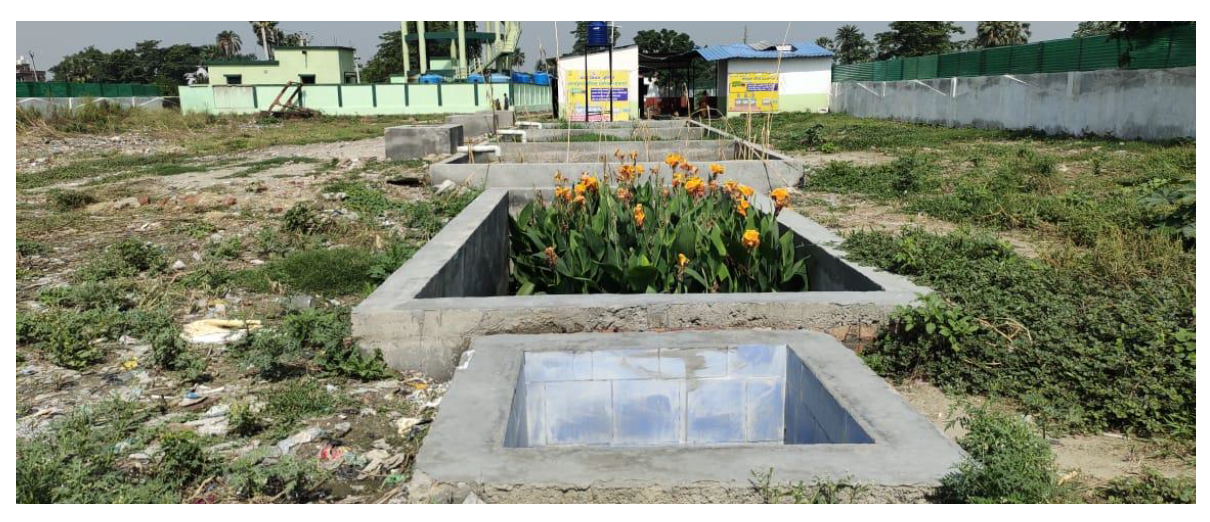
Strengthening FSM For ODF Sustainability
As Bihar continues its journey towards sustaining Open Defecation Free (ODF) status, one of the critical components emerging in the sanitation value chain is the safe and sustainable management of Faecal Sludge. While large cities have the advantage of centralized Sewerage Treatment Plants (STPs) linked to extensive sewer networks, the challenge remains immense in smaller towns, newly formed Urban Local Bodies (ULBs), and rural areas where such infrastructure is absent.
Recognizing this gap, UNICEF Bihar and FINISH Society have come together to implement a series of strategic interventions focused on ODF sustainability, retrofitting of toilets, and the construction of Faecal Sludge Treatment Plants (FSTPs) in selected districts of Bihar, notably Gaya and Purnea.
Objectives of the Initiative
The partnership aims to build a comprehensive Faecal Sludge Management (FSM) ecosystem by addressing both operational and systemic challenges. The core objectives of this program include:
- Capacity building and handholding support to strengthen FSM and the Operations & Maintenance (O&M) of WASH services.
- Designing and implementing decentralized FSM interventions tailored to the needs of small towns.
- Enhancing community awareness on the importance of safe septage disposal.
- Supporting district functionaries in developing robust FSM frameworks.
The Treatment and Disposal Challenge
The safe treatment and disposal of Faecal Sludge remains a significant hurdle in many small and medium towns. Most of these urban areas lack designated sites and infrastructure for septage treatment. In many cases, Faecal Sludge is illegally dumped into rivers, lakes, or open peri-urban lands, leading to severe environmental and public health risks.
Several underlying issues exacerbate this problem:
- Low awareness levels among desludgers and ULB officials.
- Fragmented roles and responsibilities across institutions.
- Absence of a city-wide integrated approach to FSM.
- Limited availability and adoption of appropriate, low-cost technologies.
Nature-Based and Sustainable Solutions
To address these challenges, the program focuses on nature-based, low-cost FSM technologies. The Faecal Sludge treatment system is designed around two major steps:
Step 1: Treatment Functions
The treatment of Faecal Sludge involves four key functions:
- Solid-liquid separation – to segregate the heavier solids from the wastewater.
- Sludge stabilization – to reduce pathogens and organic matter through biological processes.
- Drying – to minimize volume and make handling easier.
- Pathogen reduction – to ensure the treated sludge is safe for reuse or disposal.
Step 2: End Use and Co-treatment Models
Depending on the context and local infrastructure, the following treatment models are implemented:
- Co-treatment of Faecal Sludge with municipal sewage at STPs (where permitted).
- Co-composting with municipal solid waste to produce enriched organic compost.
- Independent FS Treatment Plants (FSTPs) that convert sludge into useful by-products like compost or briquettes for use as fuel.
Capacity Building and Revenue Generation
A key success factor for long-term sustainability lies in the capacity building of local stakeholders. The program has trained:
- Municipal staff and engineers
- Sanitation workers and desludging operators
- Community-based organizations
These trainings cover aspects of FSM operations, plant maintenance, occupational safety, and hygienic desludging practices. Additionally, the co-compost produced from FS is being market-linked to support revenue generation for ULBs and local entrepreneurs, thereby promoting the circular economy and ensuring economic viability of the plants.
Way Forward
The interventions in Gaya and Purnea serve as replicable models for other districts. As FSM continues to emerge as a crucial pillar of sustainable sanitation, the joint efforts of UNICEF Bihar and FINISH Society stand as a testament to the power of collaboration in achieving safe, inclusive, and environmentally resilient sanitation systems for all.

